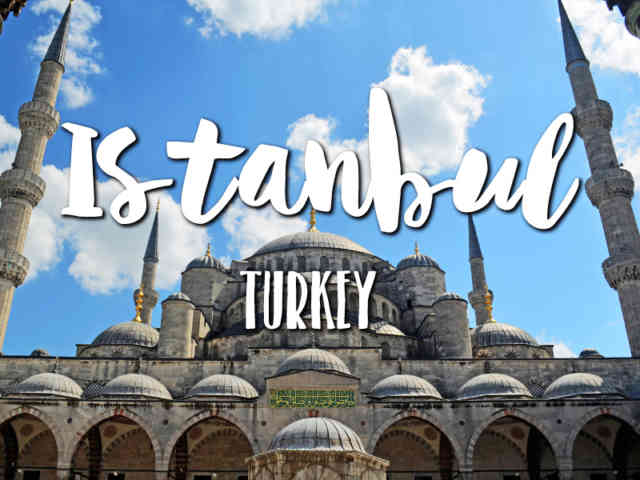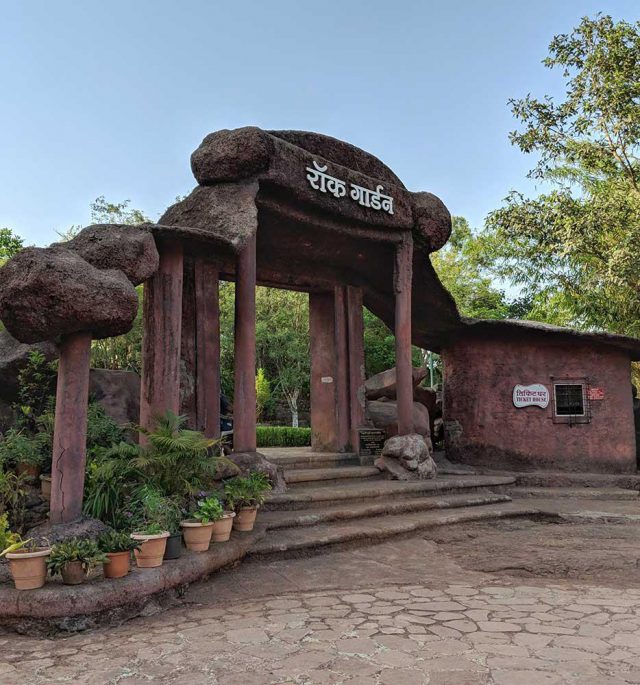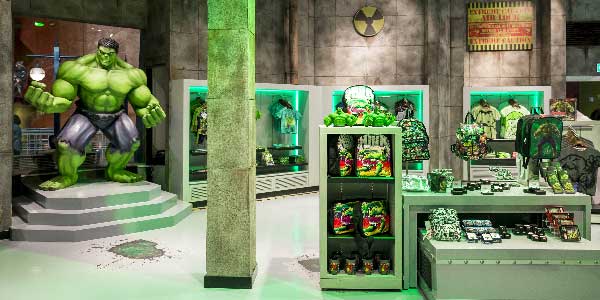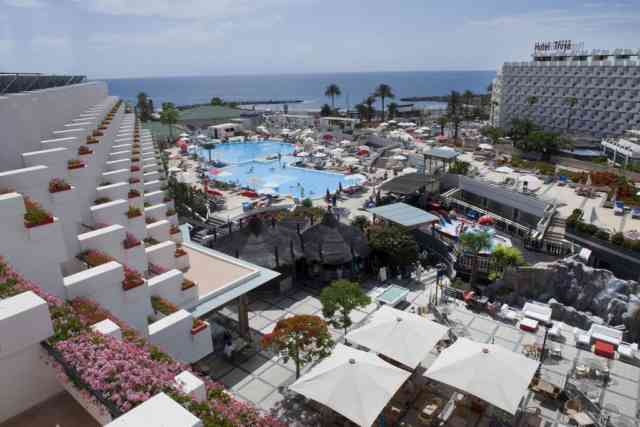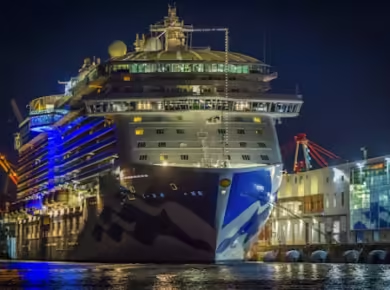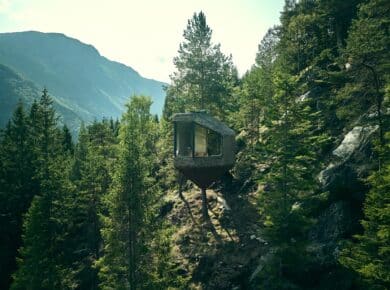Napoleon once said “If the world was only one country, Istanbul would be its capital.”And the rich heritage and history of the place justifies why Napoleon said so! Below mentioned are some of the historically significant places in Istanbul that make it a city with fascinating stories.
The Blue Mosque
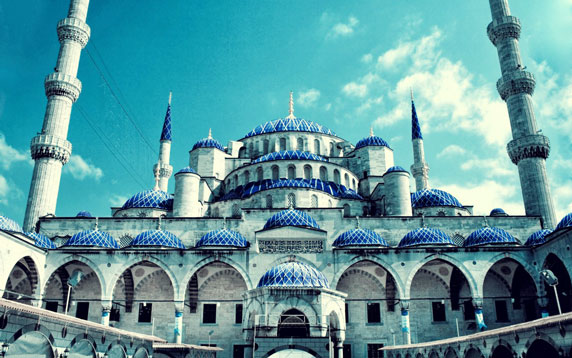
Originally named as Sultan Ahmet Camii, this beautiful architecture is known as Blue Mosque due to its dominant blue color inside. It was built as a symbol for power by Sultan Ahmed I. This mosque was a mode to reaffirm the Ottoman power after they lost the war against the Persians in 1618. The impressive structure of this mesmerizing architecture was ahead of its time. The ceiling with minarets decorated by the gigantic domes creates a captivating sight to relish. Around 20,000 Iznik tiles crafted and hand painted with flowers and trees are used to decorate the interior of the mosque offer a sight that is unavoidable and magical. The corresponding stained glass windows towards the east direction signifying the direction of Mecca add a lot more charm to the entire architecture. When the light enters through these stained glass windows, the interior of the mosque turns into a spectrum of colors. A huge chandelier with numerous small lights in the middle of the room brightens up the already well-lit room.
Hagia Sophia
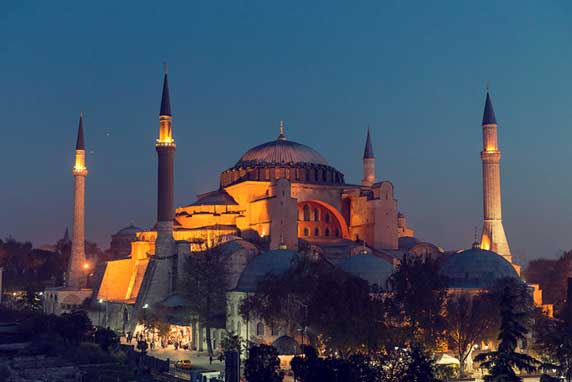
One of the most eternal monuments of Istanbul, Hagia Sophia has fought many battles and is still standing high. First built by the Emperor Constantius, the son of Constantin the great in 360 AD, Hagia Sophia was a Basilica planned church which was burned down in 404 AD by people. Again after 11 years it was built by the emperor Theodosius II which was again destined to be burnt! Finally in 537 AD, the third Hagia Sophia was rebuilt which served as the greatest church of the Eastern Roman Empire until 1453. And when the city was conquered by the Ottoman this church was converted into a mosque till 1935. After which it was converted into a museum on the orders of Ataturk, the founder of Turkish Republic. Even today you will find Christian icons along with the Islamic additions made by the Ottomans.
Topkapi Palace
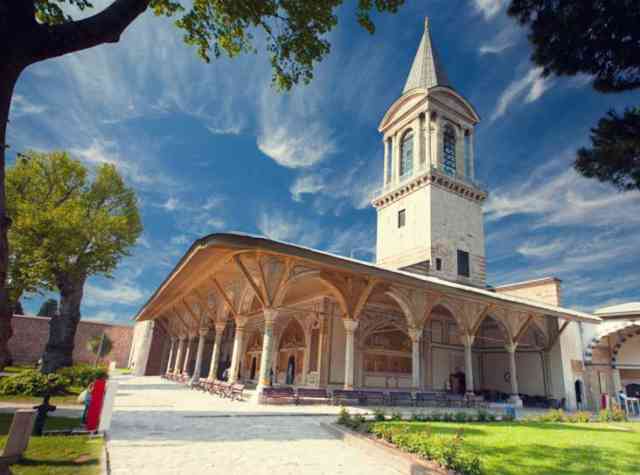
Built by Sultan Mehmed II in 1478 as a seat of government, Topkapi Palace was originally named as Saray -I Cedid which meant the New Palace as it is the second palace built by the Ottomans in Istanbul. It is one of the most popular attractions and most visited museum in entire Turkey. The palace is surrounded by beautiful gardens making it a nature friendlier architecture. The Topkapi Palace has the third largest pottery collection in the world hidden with its prehistoric kitchens that were used to accommodate about 4000 to 5000 people a day! These potteries were first made out of terra cotta, and later by celadon, blue pottery, and finally colored pottery that came in 16th century. For culture enthusiasts the palace has a specific room filled with ancient Islamic relics that include a mold of the prophet’s foot, Moses’s staff, sword of the prophet and the Kaaba key.
Basilica Cistern
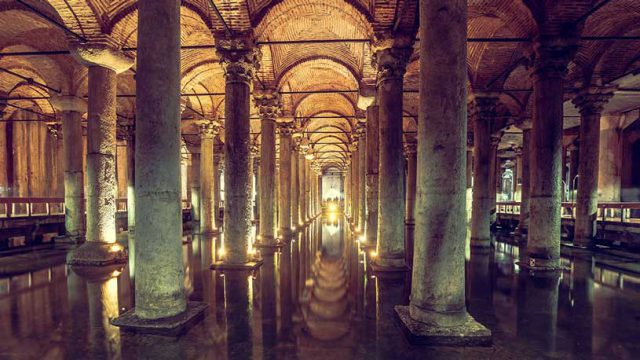
Basilica Cistern or the Sunken Palace also known as ”Yerebatan Sarayi” by the locals is an underground chamber with an area of about 9800 square meters to store water for the historic Constantinople was built in the 6th century by Emperor Justinian. At present it serves as a home for fishes and Greek arts and is a well-restored museum. Day trips from Istanbul are considered incomplete without a visit to this beautiful piece of architecture.
The Grand Bazaar
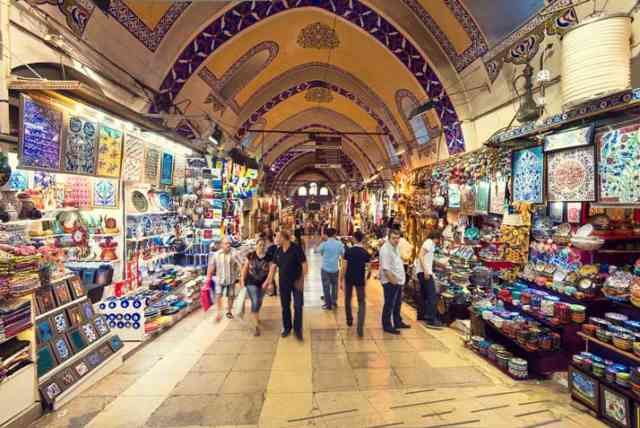
Built in 1461, The Grand Bazaar offers an entirely different shopping experience when compared with the regular shopping malls. Low ceilings, yellow walls, bright and enchanting lights from the lamp shops attracts visitors towards them and the rich aromas from the Turkish delight and spice shops keep you enticed within the market.
